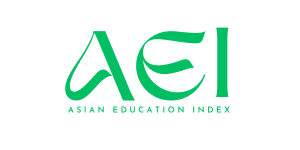Analysing The Impact of Covid-19 On UK SMES and Strategies Adopted, A Study on SMES in The UK Hospitality Sector
Keywords:
hotel business, pandemic, COVID-19Abstract
This article analyses the impact of the COVID-19 pandemic on the hotel business and the economy as a whole. The hotel sector is considered an important source of income and job creation in many countries. The restrictive measures and closures caused by the pandemic have led to a significant reduction in revenue and problems for small and medium-sized enterprises in the industry. The purpose of the study is to determine the strategies and intentions adopted by the UK hotel industry during the crisis. A qualitative research approach will be used to collect data. Analysing the data, the authors show that hotel companies have faced immediate and long-term consequences of the pandemic, including closures, reduced revenues and problems with demand recovery. This study is useful for understanding the impact of COVID-19 on the hotel sector and the strategies adopted in the UK, especially for small and medium-sized enterprises in this industry.
References
Abed, S.S., 2021. A literature review exploring the role of technology in business survival during the Covid-19 lockdowns. International Journal of Organizational Analysis.
Abhari, S., Jalali, A., Jaafar, M. and Tajaddini, R. 2021.The impact of Covid-19 pandemic on small businesses in tourism and hospitality industry in Malaysia. Journal of Research in Marketing and Entrepreneurship .
Adam, N.A. and Alarifi, G. 2021. Innovation practices for the survival of small and medium enterprises (SMEs) in the COVID-19 times: the role of external support. Journal of innovation and entrepreneurship, 10(1), pp.1-22.
Alonso, A.D., Kok, S.K., Bressan, A., O’Shea, M., Sakellarios, N., Koresis, A., Solis, M.A.B. and Santoni, L.J., 2020. COVID-19, aftermath, impacts, and hospitality firms: An international perspective. International journal of hospitality management, 91, p.102654.
Alvarez, T., Sensini, L., Bello, C. and Vazquez, M., 2021. Management accounting practices and performance of SMEs in the SMEs industry: Evidence from an emerging economy. International Journal of Business and Social Science, 12(2), pp.24-35.
Belghitar, Y., Moro, A. and Radić, N., 2022. When the rainy day is the worst hurricane ever: the effects of governmental policies on SMEs during COVID-19. Small Business Economics, 58(2), pp.943-961.
Beraha, I. and Đuričin, S., 2020. The impact of COVID-19 crisis on medium-sized enterprises in Serbia. Economic Analysis, 53(1), pp.14-27.
Bianco, V., Righi, D., Scarpa, F. and Tagliafico, L.A., 2017. Modeling energy consumption and efficiency measures in the Italian SMEs sector. Energy and Buildings, 149, pp.329-338.
Braun, V. and Clarke, V. 2021.Conceptual and design thinking for thematic analysis. Qualitative Psychology.
Burhan, M., Salam, M.T., AbouHamdan, O. and Tariq, H., 2021.Crisis management in the hospitality sector SMEs in Pakistan during COVID-19. International Journal of Hospitality Management, 98, p.103037.
Rizaev, I. (2022). Synergetics in Social Systems and its Possibilities. Global Scientific Review, 10, 62-69.
Alikulov, X., & Haqqulov, N. Q. (2020). Spiritual maturity and philosophical thinking dependence of development. ISJ Theoretical & Applied Science, 4(84), 164-167.
Ризаев, И. Chaos and order in the dynamics of the social system. O‘zbekiston milliy Universiteti Xabarlari, 2022,[1/7] ISSN 2181-7324.
Usmonov, F. (2023). Ethical differences between science and pseudoscience. European Journal of Interdisciplinary Research and Development, 18, 84-88.
Mardonov, R. (2021, February). Experience in using innovative technologies in teaching social and humanities disciplines in foreign education. In Archive of Conferences (Vol. 15, No. 1, pp. 155-159).
Saliyevich, K. S. (2022). Intention of Rationality in the Research Practice of Central Asian Thinkers. Czech Journal of Multidisciplinary Innovations, 12, 61-64.
Alikulov, S. A., & Rizaev, I. I. (2020). Methodological problems of research of social systems. Theoretical & Applied Science, (2), 717-720.
Downloads
Published
Issue
Section
License

This work is licensed under a Creative Commons Attribution-NonCommercial 4.0 International License.
User Rights
Under the Creative Commons Attribution-NonCommercial 4.0 International (CC-BY-NC), the author (s) and users are free to share (copy, distribute and transmit the contribution).
Rights of Authors
Authors retain the following rights:
1. Copyright and other proprietary rights relating to the article, such as patent rights,
2. the right to use the substance of the article in future works, including lectures and books,
3. the right to reproduce the article for own purposes, provided the copies are not offered for sale,
4. the right to self-archive the article.














